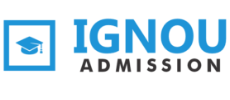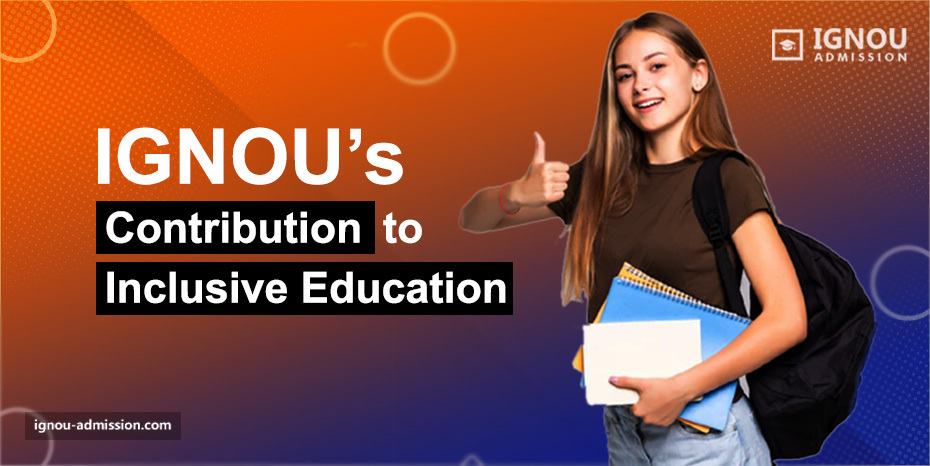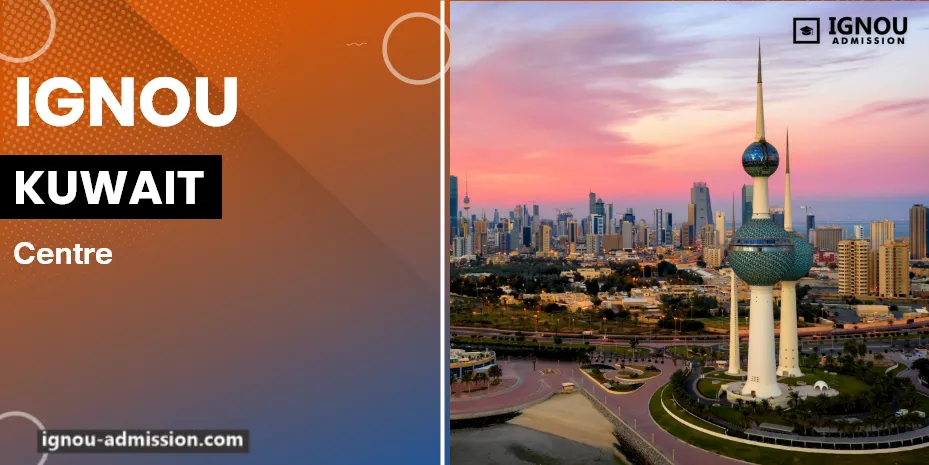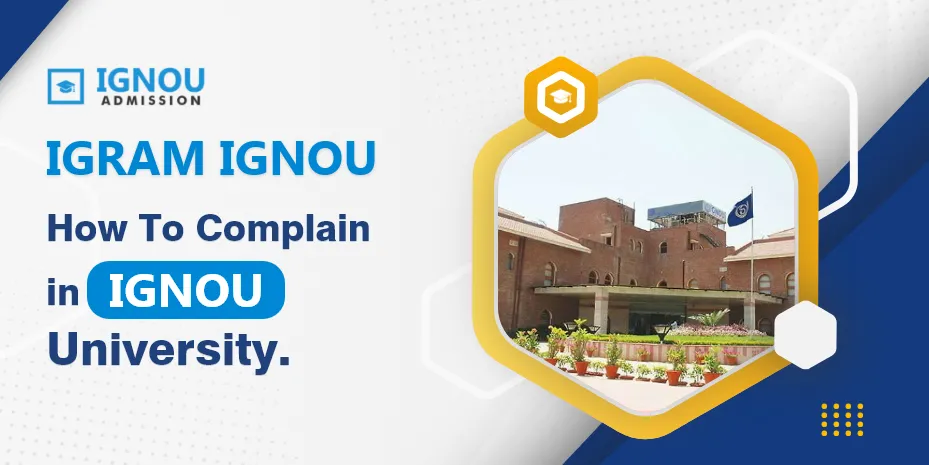In a world where education is considered the key to success, marginalised communities are often left behind. Access to education has long been a challenge for those living in poverty, those with disabilities, and those living in remote areas. However, one institution has made it their mission to break down barriers and provide access to education for all. Indira Gandhi National Open University (IGNOU) has been at the forefront of inclusive education for marginalised communities for over 30 years. Through their innovative programs and initiatives, they have created opportunities for those who would otherwise be left behind. In this blog post, we will take a closer look at IGNOU’s journey and how they have been able to make a difference in the lives of countless individuals. From their inception to their current initiatives, we will explore their programs and the impact they have made on the education sector.
Contents
- 1 1. Introduction: Understanding the importance of inclusive education
- 1.1 2. The need for inclusive education in marginalised communities
- 1.2 3. IGNOU: A pioneer in inclusive education
- 1.3 4. Initiatives and programs by IGNOU for marginalised communities
- 1.4 5. Overcoming barriers: Challenges faced in implementing inclusive education
- 1.5 6. Success stories: Impact of IGNOU’s inclusive education programs
- 1.6 7. Collaborations and partnerships for inclusive education
- 1.7 8. Future prospects and advancements in inclusive education
- 1.8 9. Empowering individuals and transforming communities through inclusive education
1. Introduction: Understanding the importance of inclusive education
Inclusive education is a concept that has gained significant recognition and importance in recent years. It goes beyond merely providing access to education for all individuals; it aims to create an environment where every learner, regardless of their background or abilities, feels valued and included.
In this blog post, we delve into the remarkable journey of the Indira Gandhi National Open University (IGNOU) in championing inclusive education for marginalised communities. By breaking barriers and fostering equal opportunities, IGNOU has become a beacon of hope for those who have been historically denied access to quality education.
The importance of inclusive education cannot be overstated. It not only promotes social justice and equality but also enhances the overall educational experience for all students. By embracing diversity, inclusive education fosters a sense of belonging and respect among learners, helping them develop empathy, understanding, and acceptance of differences.
For marginalised communities, inclusive education is a transformative force that empowers individuals to overcome the challenges they face due to societal discrimination and exclusion. It opens doors to knowledge, skills, and opportunities that were previously inaccessible to them, enabling them to break free from the cycle of poverty and marginalisation.
2. The need for inclusive education in marginalised communities
In today’s world, education is a fundamental right that should be accessible to all individuals, regardless of their background or social status. However, marginalised communities often face numerous barriers that prevent them from accessing quality education. This is where the importance of inclusive education comes into play.
Inclusive education aims to provide equal educational opportunities to every individual, including those from marginalised communities. It recognizes and appreciates the diversity among students, taking into account their unique needs, abilities, and backgrounds. By breaking down barriers and fostering an inclusive learning environment, marginalised individuals can overcome the challenges they face and receive the education they deserve.
One of the institutions leading the way in inclusive education is the Indira Gandhi National Open University (IGNOU). With a strong commitment to equity and social justice, IGNOU has embarked on a remarkable journey to ensure that education reaches even the most marginalised communities.
IGNOU recognizes that marginalised communities often face multiple layers of discrimination and disadvantage, such as poverty, gender inequality, caste-based discrimination, and lack of accessibility. To address these challenges, the university has developed innovative and inclusive programs that cater specifically to the needs of these communities.
Through distance education and online learning platforms, IGNOU has made education accessible to individuals who may not have the means to attend traditional educational institutions. By providing flexible learning options, marginalised individuals, including those in remote areas, can now pursue their dreams of higher education without facing geographical barriers.
Moreover, IGNOU has implemented various support systems and initiatives to cater to the specific needs of marginalised communities. These include specialised study materials, academic counselling, and mentorship programs, all aimed at ensuring that students receive the necessary guidance and support to excel in their studies.
3. IGNOU: A pioneer in inclusive education
IGNOU, the Indira Gandhi National Open University, stands as a true pioneer in the realm of inclusive education. Since its establishment in 1985, IGNOU has been committed to breaking down barriers and providing accessible education opportunities to marginalised communities.
What sets IGNOU apart is its unique approach to learning. Recognizing that traditional education systems may not cater to the needs of all learners, IGNOU has embraced distance education as a powerful tool for inclusivity. By offering a wide range of flexible learning options, including open and distance learning programs, IGNOU has been able to reach individuals who may have otherwise been excluded from formal education.
Through its inclusive policies, IGNOU has opened the doors of education to countless individuals who face various challenges such as geographical constraints, financial limitations, or personal circumstances. Whether it is a student living in a remote village, a working professional seeking to enhance their skills, or someone with physical disabilities, IGNOU ensures that everyone has an equal opportunity to pursue their educational aspirations.
In addition to its innovative approach, IGNOU has also taken significant steps to create an inclusive learning environment. The university provides extensive support services, such as study materials in alternative formats for visually impaired students, accessible study centres, and online resources to cater to diverse learning needs. Furthermore, IGNOU’s network of regional centres and study centres across the country ensures that students have easy access to educational resources and guidance.
4. Initiatives and programs by IGNOU for marginalised communities
IGNOU, the Indira Gandhi National Open University, is committed to breaking barriers and providing inclusive education for marginalised communities. Over the years, they have implemented various initiatives and programs to ensure that no one is left behind in the pursuit of education.
One notable initiative by IGNOU is the establishment of special study centres in remote and underserved areas. These study centres cater specifically to marginalised communities, providing them with access to quality education right in their own communities. By setting up these centres, IGNOU has made education more accessible and convenient for individuals who may have otherwise faced numerous obstacles in their educational journey.
Furthermore, IGNOU has developed specialised programs tailored to the needs and interests of marginalised communities. These programs not only address educational needs but also focus on empowering individuals to improve their socio-economic conditions. From vocational training courses to skill development programs, IGNOU has taken a comprehensive approach to uplift marginalised communities and equip them with the necessary tools for success.
In addition to their initiatives and programs, IGNOU actively collaborates with various government agencies, NGOs, and community organisations to further their efforts in inclusive education. Through these partnerships, they have been able to reach a wider audience and extend their impact to even the most remote and marginalised communities.
5. Overcoming barriers: Challenges faced in implementing inclusive education
Implementing inclusive education for marginalised communities is not without its challenges. Breaking down barriers and ensuring equal access to education for all requires a comprehensive approach and dedicated efforts from educational institutions like IGNOU.
One of the significant challenges faced in implementing inclusive education is the lack of resources and infrastructure. Many marginalised communities, especially those in remote areas, often lack proper educational facilities, including schools, libraries, and technology. This limits the accessibility of education for these communities, making it difficult to ensure inclusive practices.
Another challenge is the societal mindset and attitudes towards inclusive education. There might be deep-rooted prejudices and stigmas attached to certain marginalised communities, resulting in discrimination and exclusion. Overcoming these biases requires creating awareness, promoting inclusivity, and fostering a culture of acceptance and respect within the educational system.
Language barriers also pose a significant challenge. In a diverse country like India, where numerous languages and dialects are spoken, ensuring that educational materials are available in the local languages of marginalised communities can be a complex task. Translating and adapting curriculum materials to cater to diverse linguistic needs is vital in making education accessible and inclusive.
Furthermore, the lack of trained professionals who are equipped to handle the diverse needs of marginalised communities is another hurdle. Teachers and educators need specialised training and support to address the unique learning requirements of students with disabilities, children from disadvantaged backgrounds, and other marginalised groups.
6. Success stories: Impact of IGNOU’s inclusive education programs
IGNOU’s inclusive education programs have had a remarkable impact on marginalised communities, generating numerous success stories that highlight the transformative power of accessible education. Through its commitment to breaking barriers and providing equal opportunities, IGNOU has been instrumental in empowering individuals who previously faced limited educational prospects.
One notable success story is that of Rani, a young woman from a remote village who had been denied formal education due to her gender. With the introduction of IGNOU’s distance learning programs in her community, Rani was finally able to pursue her dream of becoming a teacher. Through dedication and hard work, she successfully completed her Bachelor’s degree in Education, defying societal norms and inspiring future generations.
These success stories are not isolated incidents but representative of the wider impact IGNOU’s inclusive education programs have had on marginalised communities across India. By providing flexible learning options, tailored support, and promoting an inclusive environment, IGNOU has empowered countless individuals to overcome societal barriers and achieve their educational aspirations.
7. Collaborations and partnerships for inclusive education
Collaborations and partnerships are vital for promoting inclusive education and breaking barriers for marginalised communities. IGNOU, the Indira Gandhi National Open University, has recognized the significance of working together with various stakeholders to ensure equal access to education for all.
Through strategic collaborations with local organisations, NGOs, government agencies, and international institutions, IGNOU has been able to extend its reach and impact in providing inclusive education. By joining forces with these partners, IGNOU can tap into their expertise, resources, and networks to create innovative programs and initiatives that cater specifically to the needs of marginalised communities.
For instance, IGNOU has partnered with NGOs focused on empowering women and girls to develop customised courses that address the unique challenges they face in accessing education. By collaborating with these organisations, IGNOU can design learning materials and delivery methods that are culturally sensitive and gender-responsive, ensuring that education is accessible and relevant to the specific needs of women and girls in marginalised communities.
Furthermore, IGNOU has established partnerships with government agencies and departments to strengthen its efforts in inclusive education. By aligning with governmental initiatives and policies, IGNOU can leverage their support and resources to expand its reach and impact. This collaboration also enables IGNOU to contribute to policy discussions and advocate for the rights of marginalised communities in the education sector.
8. Future prospects and advancements in inclusive education
As the world continues to evolve, so does the field of inclusive education. The future prospects and advancements in this area hold immense potential for marginalised communities, and IGNOU is at the forefront of driving these positive changes.
One of the key advancements in inclusive education is the integration of technology. With the rapid growth of digital platforms and online learning, educational institutions like IGNOU have the opportunity to reach even more marginalised communities. Through virtual classrooms, online resources, and interactive learning platforms, students who were previously limited by geographical, economic, or physical barriers can now access quality education from the comfort of their homes.
Additionally, advancements in assistive technology have significantly improved the learning experience for students with disabilities. From screen readers and speech recognition software to adaptive devices and tactile learning tools, these advancements empower students with diverse needs to actively engage in the learning process. IGNOU recognizes the importance of providing inclusive education that caters to the unique requirements of each student, and ongoing research and development in assistive technology are paving the way for a more inclusive learning environment.
Furthermore, collaboration and partnerships are crucial for the advancement of inclusive education. By working together with government agencies, non-profit organisations, and other educational institutions, IGNOU can leverage collective expertise and resources to create sustainable and scalable programs for marginalised communities. Through these collaborations, innovative teaching methods, curriculum design, and support systems can be developed, ensuring that every learner has equal opportunities for success.
9. Empowering individuals and transforming communities through inclusive education
Inclusive education has the power to empower individuals and transform communities. IGNOU, a pioneer in distance education, has been at the forefront of breaking barriers and providing inclusive education opportunities to marginalised communities.
Through its innovative programs and initiatives, IGNOU has opened doors for individuals who may have otherwise been left behind due to various socio-economic constraints. By offering flexible learning options, such as online courses and study centres in remote areas, IGNOU ensures that education reaches those who need it the most.
The impact of inclusive education goes beyond just individuals. It has the potential to bring about positive change in communities and societies as a whole. By equipping individuals with knowledge and skills, IGNOU enables them to actively participate in the development of their communities.
Inclusive education fosters social inclusion and reduces inequality. It creates a level playing field, where individuals from all backgrounds have equal opportunities to learn, grow, and contribute. Through its commitment to inclusive education, IGNOU is not only transforming the lives of individuals but also building more inclusive and equitable societies.
Moreover, IGNOU’s inclusive education initiatives extend beyond formal education. The university also offers vocational training programs and skill development courses, empowering individuals to gain practical skills that can enhance their employability and economic prospects. By addressing the unique needs and challenges of marginalised communities, IGNOU is breaking barriers and opening doors to a brighter future.
10. Conclusion: The way forward for inclusive education and societal transformation
In conclusion, IGNOU’s journey in inclusive education for marginalised communities has been commendable and inspiring. By breaking barriers and providing access to quality education for all, regardless of their social, economic, or geographical backgrounds, IGNOU has set a precedent for other institutions to follow.
The way forward for inclusive education and societal transformation lies in collective efforts and a multi-faceted approach. It is crucial for educational institutions, policymakers, and stakeholders to come together and prioritise inclusive education as a fundamental right of every individual. By addressing the systemic inequalities and barriers that hinder marginalised communities from accessing education, we can create a more equitable and just society.
As we continue to strive for a more equitable society, let us look to IGNOU as a shining example of how education can be a powerful tool for empowerment and social change.




